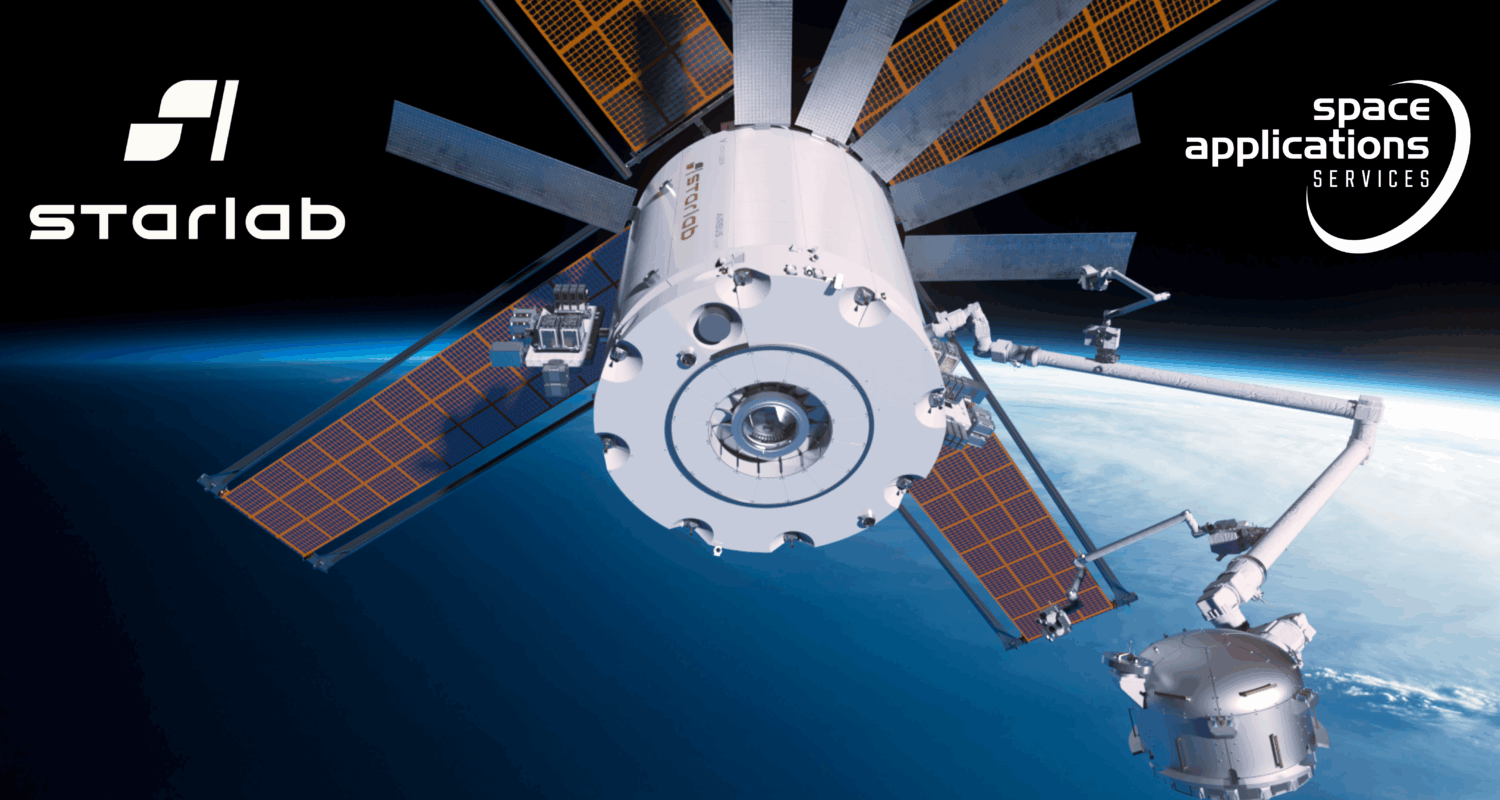An important step in strengthening our role in the commercial space sector
-
Space Applications Services, a global leader in space engineering and payload integration, has joined Starlab Space LLC as a strategic partner and equity owner. This partnership represents a major milestone for Space Applications Services, expands Starlab’s global footprint as the next-generation commercial space station designed to succeed the International Space Station, and enhances the capabilities available to Starlab customers.
As part of this alliance, Space Applications Services will bring its renowned expertise in space systems, mission operations, and payload integration to the Starlab program. The company is widely recognized for innovations such as the International Commercial Experiment Cubes (ICE Cubes) service, advanced avionics, and mission control software solutions—capabilities that will strengthen Starlab’s offering and create new opportunities for the global scientific and industrial community.
“We are proud to join Starlab as both an investor and a partner” said Richard Aked, CEO of Space Applications Services. “This is a major milestone for Belgium’s space industry in the development of the next commercial space station. This collaboration aligns with our mission to broaden access to space and foster scientific innovation.”
The partnership also includes the creation of Space Innovation Laboratories across Europe. These ground-based facilities will provide universities and companies with access to microgravity research environments, preparing future experiments for Starlab’s orbital platform.
Marshall Smith, CEO of Starlab, added:
“The addition of Space Applications Services confirms our ambition to move rapidly from design to reality. Together, we are building the next generation of commercial space stations and opening the door to a new era of exploration and research.”
This alliance reinforces Starlab’s mission to ensure the continuity of low-Earth orbit activities after the ISS and to enable a thriving commercial space economy.
